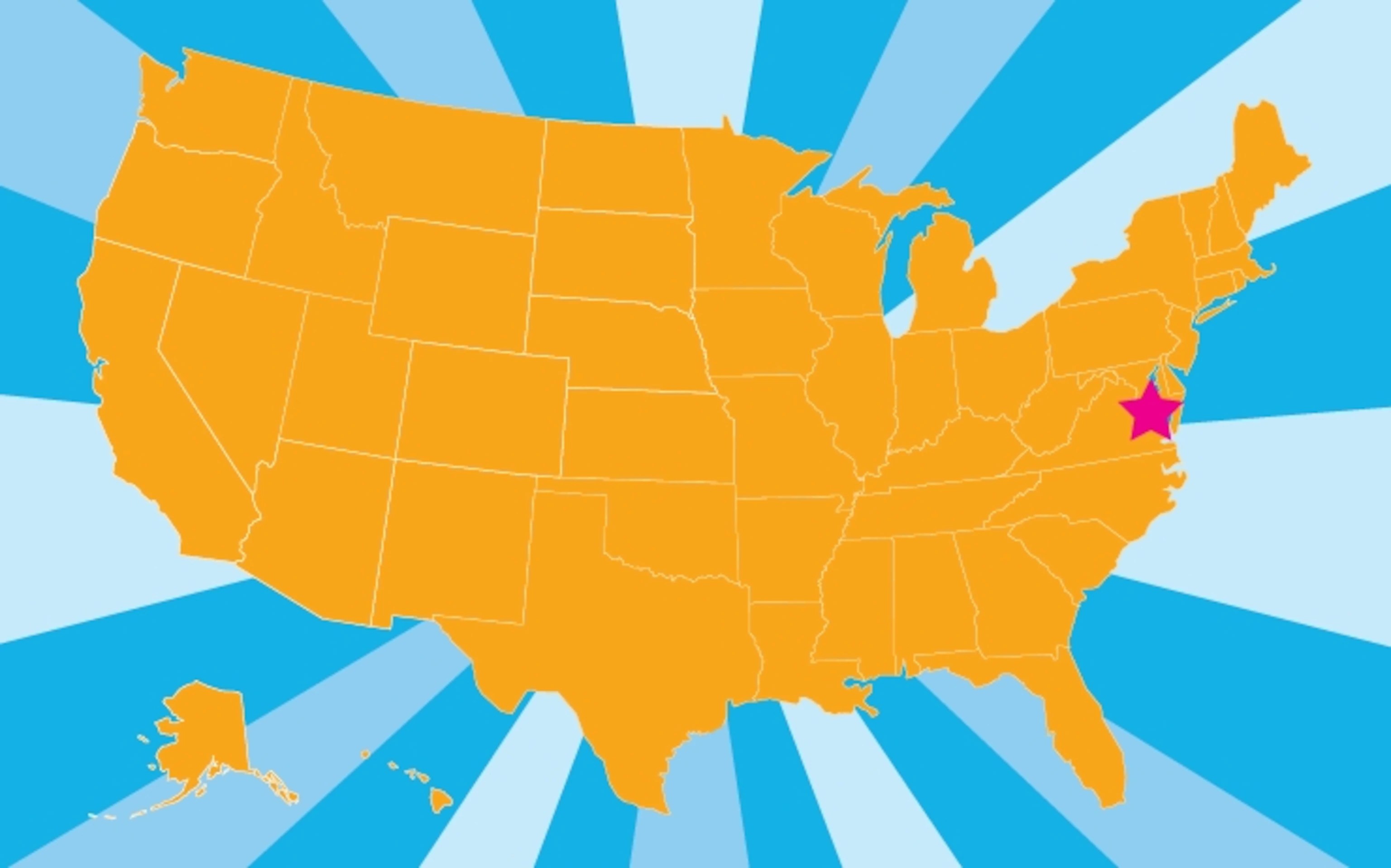Definition: Washington, D.C., is the capital of the United States. It is not part of any state and is considered a federal district.
Importance and Benefits: Washington, D.C., is the seat of the U.S. government and is home to many important landmarks and institutions, including the White House, the Capitol Building, and the Supreme Court. It is also a major center for culture, education, and tourism.
Historical Context: Washington, D.C., was established in 1790 as the permanent capital of the United States. It was named after George Washington, the first president of the United States.
What State is Washington, D.C.?
Washington, D.C., is not part of any state. It is a federal district, meaning that it is under the direct control of the federal government. This is because Washington, D.C., is the capital of the United States, and it is important for the federal government to have direct control over the city in which it is located.
- Location: Washington, D.C., is located on the Potomac River, between the states of Virginia and Maryland.
- History: Washington, D.C., was established in 1790 as the permanent capital of the United States. It was named after George Washington, the first president of the United States.
Washington, D.C., is a unique city with a rich history and culture. It is home to many important landmarks and institutions, including the White House, the Capitol Building, and the Supreme Court. Washington, D.C., is also a major center for culture, education, and tourism.
Location
The location of Washington, D.C., is directly related to its status as a federal district. When the United States Constitution was ratified in 1788, there was a great deal of debate about where the permanent capital of the country should be located. Some states wanted the capital to be located in their state, while others wanted it to be located in a more central location. Eventually, a compromise was reached, and the Residence Act of 1790 was passed. This act authorized the creation of a federal district, which would be located on the Potomac River, between the states of Virginia and Maryland. The district would be under the direct control of the federal government, and it would be the permanent capital of the United States.
The location of Washington, D.C., has had a significant impact on its development. The city is located at the head of navigation on the Potomac River, which made it an important center for trade and commerce. The city is also located in a relatively central location, which has made it a convenient place for the federal government to operate.
Today, Washington, D.C., is a thriving metropolis with a population of over 680,000 people. It is home to many important landmarks and institutions, including the White House, the Capitol Building, and the Supreme Court. Washington, D.C., is also a major center for culture, education, and tourism.
History
To understand the connection between this history and "what state is Washington DC?", it's crucial to delve into the reasoning behind establishing a federal district as the capital rather than locating it within an existing state.
- Maintaining neutrality and balance
By establishing the capital in a federal district, the United States aimed to avoid giving any particular state undue influence or control over the federal government. This decision ensured that the capital remained neutral ground, fostering a sense of equality among the states.
- Securing the capital from state interference
Placing the capital under the direct control of the federal government shielded it from potential interference or influence by state governments. This measure ensured the federal government's autonomy in carrying out its responsibilities and making decisions without external pressures.
- Creating a symbol of national unity
The establishment of Washington, D.C., as the capital served as a powerful symbol of national unity. It represented the coming together of the states to form a cohesive nation and embodied the principles of shared sovereignty and cooperation.
- Honoring the legacy of George Washington
Naming the capital after George Washington, the revered first president of the United States, paid tribute to his leadership and the ideals he embodied. It also reflected the nation's gratitude for his role in securing American independence and shaping the country's foundational principles.
In conclusion, the history of Washington, D.C.'s establishment as the permanent capital of the United States is deeply intertwined with the question of "what state is Washington DC?". The decision to create a federal district was driven by the desire to maintain neutrality, secure the capital from state interference, foster national unity, and honor George Washington's legacy, all of which continue to shape the unique character and significance of the nation's capital.
FAQs About "What State is Washington, D.C.?"
This section addresses commonly asked questions and misconceptions surrounding the unique status of Washington, D.C., as the capital of the United States.
Question 1: Is Washington, D.C., a state?
Answer: No, Washington, D.C., is not a state. It is a federal district, meaning it is under the direct control of the federal government and not part of any state.
Question 2: Why is Washington, D.C., not part of any state?
Answer: Washington, D.C., was established as a federal district to ensure the neutrality and independence of the capital city. It prevents any one state from having undue influence over the federal government.
Question 3: Where is Washington, D.C., located?
Answer: Washington, D.C., is located on the Potomac River, between the states of Virginia and Maryland.
Question 4: Who named Washington, D.C., and why?
Answer: Washington, D.C., was named after George Washington, the first president of the United States, to honor his legacy and the principles he represented.
Question 5: What are the benefits of Washington, D.C., being a federal district?
Answer: Washington, D.C., being a federal district ensures its neutrality, protects it from state interference, and serves as a symbol of national unity.
Question 6: What are the responsibilities of the federal government in Washington, D.C.?
Answer: The federal government is responsible for governing and providing services to Washington, D.C., including maintaining law and order, providing education and healthcare, and managing the city's infrastructure.
In conclusion, Washington, D.C.'s unique status as a federal district is essential to its role as the capital of the United States. It ensures the city's neutrality, independence, and ability to serve as a symbol of national unity.
Transition to the next article section: "The Significance of Washington, D.C., as the Capital of the United States"
Tips for Understanding "What State is Washington, D.C.?"
Washington, D.C.'s unique status as a federal district can be a source of confusion. Here are some tips to help you better understand this topic:
Tip 1: Remember that Washington, D.C., is not part of any state. It is a federal district under the direct control of the federal government.Tip 2: Washington, D.C., was established as a federal district to ensure the neutrality and independence of the capital city.Tip 3: Washington, D.C., is located on the Potomac River, between the states of Virginia and Maryland.Tip 4: Washington, D.C., was named after George Washington, the first president of the United States.Tip 5: The federal government is responsible for governing and providing services to Washington, D.C.Tip 6: Washington, D.C., is a thriving metropolis with a population of over 680,000 people.Tip 7: Washington, D.C., is home to many important landmarks and institutions, including the White House, the Capitol Building, and the Supreme Court.Tip 8: Washington, D.C., is also a major center for culture, education, and tourism.Understanding these tips will help you better grasp the unique status of Washington, D.C., as the capital of the United States.Key Takeaways: Washington, D.C.'s status as a federal district is essential to its role as the capital of the United States. It ensures the city's neutrality, independence, and ability to serve as a symbol of national unity.
Conclusion: Washington, D.C., is a unique and fascinating city with a rich history and culture. Its status as a federal district is an important part of its identity and its role in the United States.
Conclusion
Washington, D.C., as the capital of the United States, holds a unique position as a federal district rather than being part of any state. This status, established in 1790, underscores the city's significance and neutrality in the nation's governance. Washington, D.C.'s location between Virginia and Maryland and its naming after George Washington further emphasize its symbolic and practical importance.
Understanding the distinct nature of Washington, D.C.'s statehood is crucial for comprehending the city's role and contributions to the United States. Its status as a federal district ensures its autonomy and impartiality, allowing it to effectively serve as the seat of the federal government and a symbol of national unity.
Unveiling The Southern Colonies' Enigmatic Bond With Native Americans
Unveiling The Intimate Meeting: Kyle Allen's Parents Embrace Jonna
Unveiling The Multifaceted World Of Inaya Folarin Iman

Washington Dc Map State Draw A Topographic Map

Washington Dc Located On A Map Washington State Map
ncG1vNJzZmijlZi5pnrSbGWuq12ssrTAjGtlmqWRr7yvrdasZZynnWTEqa3TZqqtmaSaeqq%2FjLCYrKCZo7S1u81mm5xmmKm6rQ%3D%3D